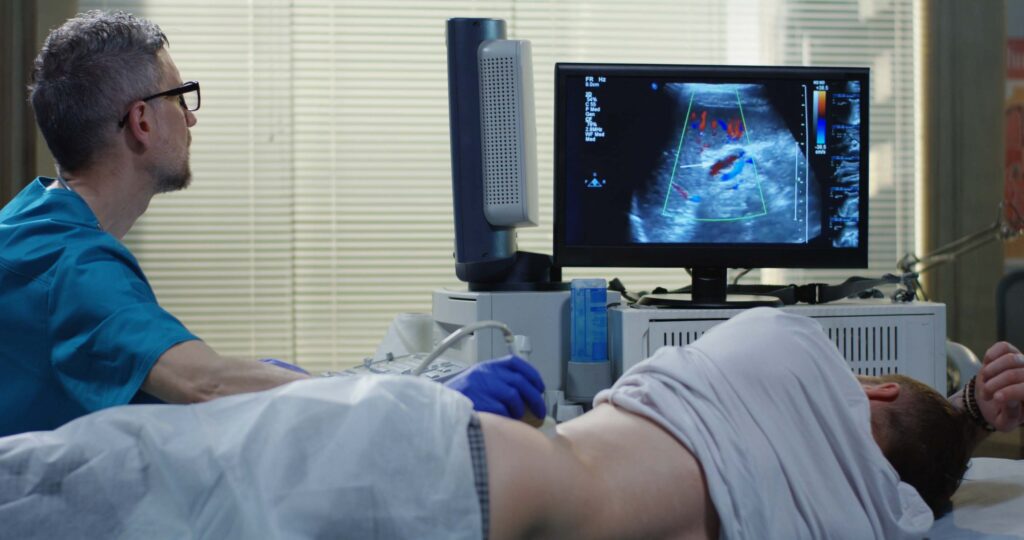PET Scan
Positron emission tomography or a PET scan is an examination that involves the usage of small amounts of an injected radiopharmaceutical to diagnose, treat, and manage diseases. PET scans are a common part of treatment plans for cancer, heart-related diseases, and the brain.
How Does It Work?
A PET scan utilizes an injected radiopharmaceutical called Fluorine-18-deoxyglucose (FDG), which is a modified sugar molecule. The modified fluorine molecule emits a small, but detectable, amount of radioactivity that can be sensed and measured by a specialized scanner.
Because it is treated like sugar by the body, the injected (FDG) accumulates in tissues that have a high rate of metabolic activity, including the brain, heart, and any possible tumor cells. This technology is highly sensitive and allows our doctors to diagnose and localize abnormalities.

The Advantages of PET Scan
PET scans measure your body tissues’ metabolism, and is very sensitive for detecting early recurrent tumor, even before the disease is easily felt or visible. PET scans can also help differentiate a benign versus malignant tumor, even when other tests are inconclusive.
PET scans typically cover most of the body, allowing our doctors to scan and evaluate large areas of interest in one exam.
Follow-up PET scans (done every six months or yearly) allow for the evaluation of disease over time, to help your doctor to properly stage and assess your response to treatments.
Do I Need A PET Scan?
PET scans are most typically used to evaluate:
- The staging of cancers and evaluating response to treatment
- A pulmonary nodule to help differentiate benign vs malignant
- For Alzheimer’s dementia

